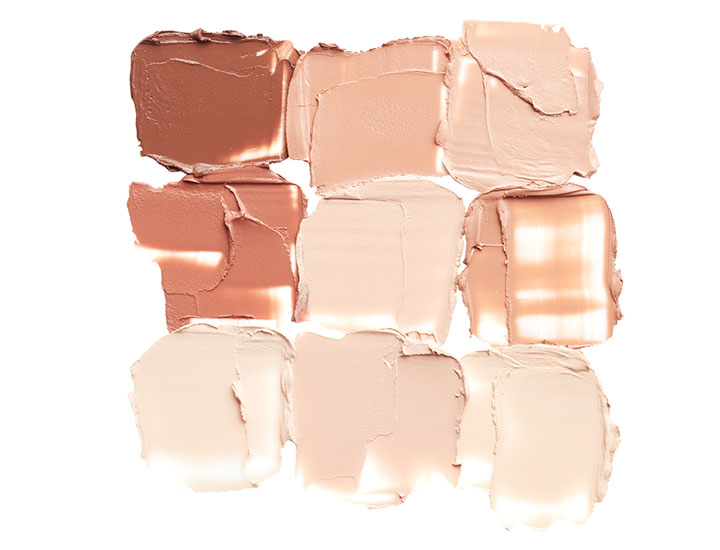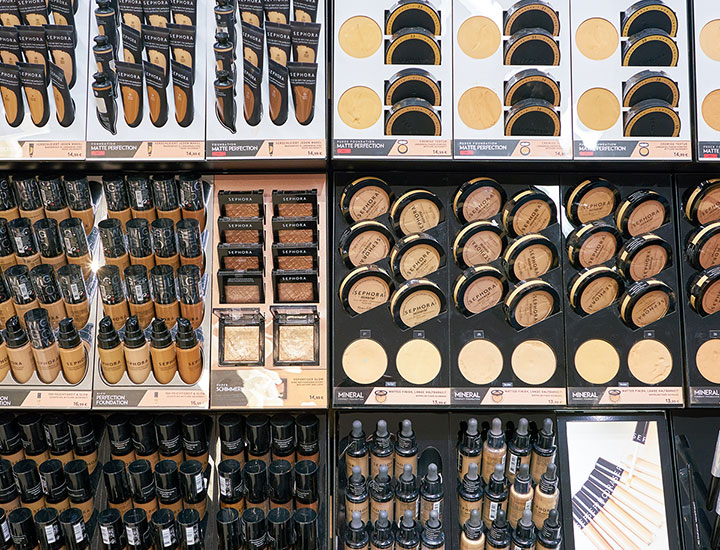
Powder Foundation
Powder foundation always seems like a great idea in theory. They’re easy to apply, portable, and their formulation makes it much easier to touch up your makeup throughout the day. But over the age of, let’s be charitable and 35 though it might even be younger, powder foundation and skin don’t always mix well. Powders tend to accentuate every single fine line and wrinkle on the face, and this formula can easily settle into larger pores, as well. Add to this the fact that our skin often becomes dryer with age and that powders are extremely drying and you start to see why this is a poor foundation choice for most.
You Aren’t Blending Enough
If not blended properly, foundation can just sit on the skin and look cakey and unnatural. The best way to prevent this from happening is by blending well and properly AND with the right tools. This could mean investing in a few great makeup sponges and dampening a sponge before using it to gently press your foundation onto your skin so that it almost melts in. Brushes may be more up your alley, but be careful not to simply brush makeup aside — pressing it down is always a better technique.
Using Foundation That’s Too Light
Concealer can be one to two shades lighter than your skin tone because you’re using it sparingly and adding lightness to areas like the discoloration beneath your eyes. But foundation should match your skin as best as possible. If you are using a too-light foundation in the hopes of concealing imperfections, you could be making yourself look unnaturally pale and even sickly. Visit a beauty pro at a shop like Sephora to get some help in finding your perfect match.
Not Applying Moisturizer First
Long before your apply foundation (or even just a few minutes before you apply it) it’s essential that you moisturize your skin so that you aren’t adding makeup over dry skin, which won’t look its best. Cleanse and exfoliate your skin if necessary and then add a layer of light moisturizer and sunscreen if it’s daytime. Wait 10-15 minutes to let it absorb and then apply foundation so that it glides right on. But, before you even do that, there’s just one more crucial step …
Not Applying Primer
Primer is such an important product because it provides a barrier between your skin and foundation so that your makeup applies effortlessly and stays on longer. You can make your primer work double-time for you by choosing one that is formulated with hydrating ingredients such as hyaluronic acid so that your skin is extra smooth prior to makeup application.
Whatever you do, don’t make the mistake of thinking a primer is an “extra” step — it’s an essential step for great-looking makeup.


